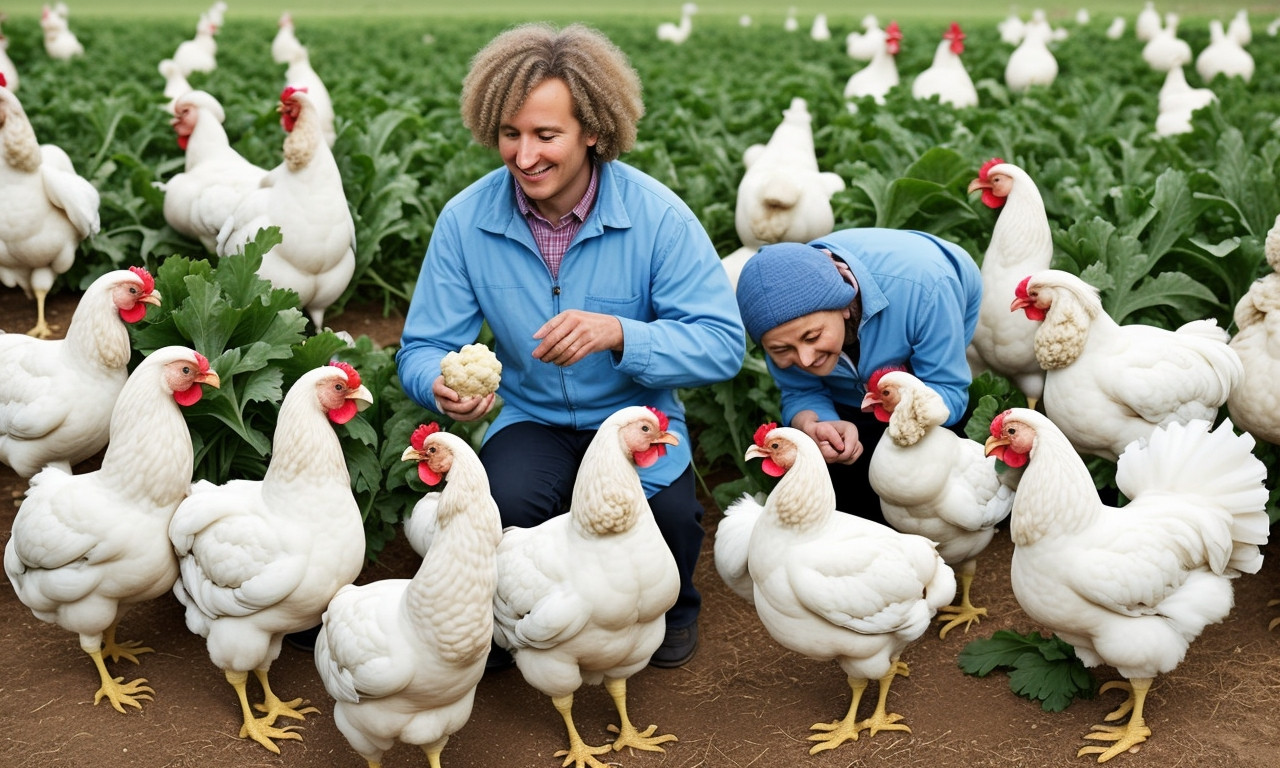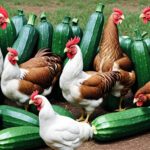Have you ever found yourself in the poultry aisle, wondering whether the vegetables you’re picking for your dinner could also be a nutritious treat for your backyard chickens? As a poultry enthusiast, you know that a varied diet is key to the health of your flock, but when it comes to feeding your chickens, you might be asking: can chickens eat cauliflower?
Cauliflower, a vegetable prominent in human diets, is packed with essential nutrients and vitamins. But does it hold the same promise for our feathery friends? In this comprehensive guide, we will dive deep into the world of poultry nutrition and unveil the secrets to a healthy flock diet. Join us as we explore the benefits and considerations of feeding cauliflower to chickens, and how to incorporate this vegetable into their meals wisely.
Understanding Chicken Nutrition: The Basics
Before introducing any new food into your chickens’ diet, it’s vital to understand their basic nutritional needs. Chickens require a balanced diet, rich in proteins, carbohydrates, fats, and a diverse range of vitamins and minerals. A well-formulated poultry feed usually covers these necessities, ensuring your chickens maintain optimal health.
The Role of Treats in a Chicken’s Diet
Treats like cauliflower can be a great addition to your chickens’ diet, provided they are given in moderation. They should never replace the main poultry feed, which ensures a balanced intake of essential nutrients.
Balance is Key
Treats should constitute no more than 10% of a chicken’s overall diet. Overfeeding with treats can chickens have celery lead to nutritional imbalances and health issues, so it’s crucial to maintain a responsible feeding regimen.
Can Chickens Eat Cauliflower? Unveiling the Truth
The simple answer is yes, chick temperature chartens can eat cauliflower, and it can be a healthy addition to their diet. However, it should be given in moderation and properly prepared to ensure it’s safe for poultry consumption.
The Benefits of Cauliflower for Chickens
Cauliflower is a low-calorie vegetable that’s high in fiber, vitamins, and minerals. Here’s what makes it a healthy treat:
- Rich in Vitamin C: Aids in the absorption of iron and promotes the healing of wounds.
- Source of Vitamin K: Necessary for blood clotting.
- Contains Fiber: Helps in digestion.
- Packed with Antioxidants: Protects against diseases.
Potential Concerns with Cauliflower
While cauliflower is nutritious, there are a few concerns to consider:
- Goitrogens: Cauliflower contains compounds that can affect thyroid function.
- Digestive Issues: Overconsumption can cause gas or bloating.
Preparing Cauliflower for Your Chickens
To ensure show to break a broody henfety and digestibility:
- Wash the cauliflower thoroughly to remove pesticides.
- Cut it into small, manageable pieces.
- Cook lightly to reduce goitrogens (optional).
Integrating Cauliflower into Your Chickens’ Diet Strategically
Moderation is the Secret Ingredient
Remember, treats should not exceed 10% of your chickens’ total diet. Offer cauliflower in small quantities alongside their regular feed.
A Varied Diet Leads to Happy Chickens
Vary the treats you provide. Along with cauliflower, chickens can enjoy a range of vegetables such as:
- Leafy greens
- Peas
- Carrots
Ensure a Balanced Approach
Always balance the addition of treats like cauliflower with a complete poultry feed to avoid imbalances in nutrition.
Exploring Cauliflower Forms: Raw, Cooked, or Leaves?
Serving Raw Cauliflower
Raw cauliflower is tough and might be harder for chickens to peck at. It’s critical to cut it into bite-sized pieces to avoid choking hazards.
What about the Leaves?
The leaves of the cauliflower plant are also edible and often softer, making them an excellent treat for your flock.
The Pros and Cons of Cooked Cauliflower
Cooking cauliflower can make it easier to digest and reduce goitrogens. However, avoid adding any salt or spices that may be harmful to chickens.
Expert Tips for Feeding Your Flock Safely
Introducing New Foods Gradually
When introducing cauliflower or any new treat, start with small amounts and observe your chickens for any adverse reactions.
Monitor Your Chickens’ Health
Keep an eye on your chickens’ general well-being, egg production, and fecal matter to ensure treats like cauliflower are not negatively impacting their health.
Hydration is Essential
Chickens should always have access to clean, fresh water, especially when they’re consuming dry treats, to aid in digestion and overall health.
FAQs on Feeding Cauliflower to Chickens
Can chickens have cauliflower every day?
It’s best to rotate treats and not offer cauliflower on a daily basis to maintain dietary diversity.
Will chicks benefit from cauliflower?
While chicks can eat cauliflower, their diet should be primarily composed of a starter feed formulated for their growth.
Are any parts of the cauliflower toxic to chickens?
No part of the cauliflower plant is toxic to chickens, but the stem and florets are tougher and should be chopped into appropriate sizes.
Conclusion: Cauliflower Can Be a Clucking Good Treat!
Feeding your chickens cauliflower can have benefits as long as it’s done responsibly and in moderation. Always prioritize a complete feed and remember that treats are just the cherry on top of a well-rounded diet. By carefully incorporating cauliflower into your chickens’ eating plan, you can enjoy the sight of a happy, healthy flock.
Incorporating cauliflower as a regular treat in your flock’s diet, you’ll not only provide them with a variety of nutrients but also the joy of pecking at something crunchy and new. So go ahead, treat your chickens to some cauliflower and watch them cluck with joy!







